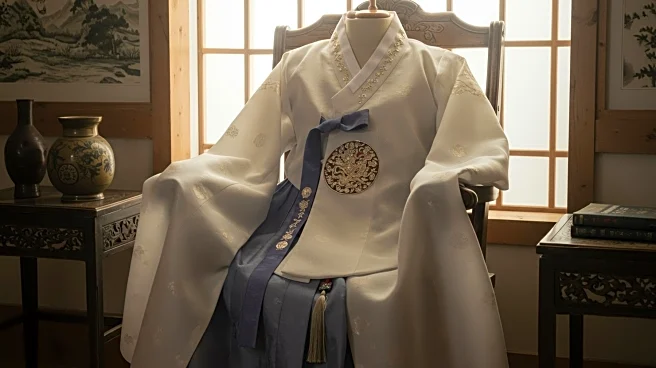What's Happening?
Ahn Hak-sop, a 95-year-old former North Korean soldier, has been denied permission by the South Korean government to return to North Korea, where he wishes to be buried. Ahn, who was captured during the Korean War and spent over four decades in prison for refusing to renounce his political beliefs, attempted to cross the heavily militarized Demilitarized Zone (DMZ) but was stopped by South Korean officials. The government has banned unauthorized contact with North Korea, and civilians are restricted from entering the DMZ. Ahn's request highlights the ongoing tension between the two Koreas, which remain technically at war since the Korean War ended in an armistice rather than a peace treaty.
Why It's Important?
The denial of Ahn's request underscores the complex and strained relations between North and South Korea. Allowing Ahn to return could have been seen as a symbolic victory for North Korea, potentially impacting diplomatic relations. For Ahn, the issue is deeply personal, as he wishes to be buried in the land that aligns with his ideological beliefs. The situation also highlights the humanitarian challenges faced by individuals caught in the geopolitical conflict between the two nations. The South Korean government's decision reflects its cautious approach to national security and its ongoing struggle to manage relations with Pyongyang.
What's Next?
The South Korean government is reviewing options from a humanitarian perspective, but any decision would require cooperation from North Korea, which has halted communications with the South since 2023. Human rights groups have expressed sympathy for Ahn's plight, but the likelihood of the government allowing his crossing remains low. The situation may prompt further discussions on the treatment of long-term unconverted prisoners and the broader implications for inter-Korean relations.
Beyond the Headlines
Ahn's story sheds light on the enduring ideological divide between North and South Korea and the personal sacrifices made by individuals caught in the conflict. His refusal to renounce his beliefs, despite decades of imprisonment, highlights the deep-rooted ideological convictions that continue to influence the Korean Peninsula. The case also raises questions about the ethical considerations of repatriating individuals who have spent significant portions of their lives in captivity due to political beliefs.








